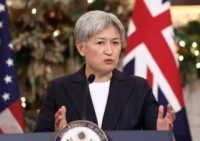UK police forces received new guidance permitting them to disclose suspects’ ethnicity and nationality in high-profile and sensitive cases. This policy change aims to combat misinformation and enhance public safety by providing accurate information in the face of rapidly spreading false narratives on social media.
The decision follows incidents where misinformation led to public unrest. Notably, in July 2024, false claims about the ethnicity and immigration status of a suspect in the Southport triple murder case fueled riots and anti-immigrant sentiments across the UK. The National Police Chiefs’ Council (NPCC) and the College of Policing developed the new guidelines to address such challenges. Deputy Chief Constable Sam de Reya emphasized the need for police processes to adapt to the rapid spread of information in the digital age, stating that disinformation can take hold in a vacuum, and it’s good police work to fill this vacuum with facts about issues of wider public interest.
The Home Office supports this policy change and will authorize the release of relevant immigration data when appropriate. However, the guidance clarifies that it is not the role of the police to verify a suspect’s immigration status; this responsibility lies with the Home Office, which will decide whether it is appropriate to confirm immigration status in each case.
While the policy aims to improve transparency and counter misinformation, it has sparked debate. Critics argue that releasing such information could exacerbate divisions within society and fuel racial tensions. Hameeda Khan, founder and CEO of PEP Enterprise CIC, expressed concerns that disclosing suspects’ ethnicity and nationality might reinforce systemic racism and falsely link race with criminality. She advocates for a national police communication framework overseen by a diverse and representative panel to promote fairness and build trust.
The new guidance is part of a broader effort to modernize communication practices within the justice system and address the challenges posed by misinformation in the digital era. As the policy is implemented, its impact on public trust and social cohesion will be closely monitored.












I think its a good move for transparency and accountability, but could it potentially perpetuate stereotypes? Food for thought.
I think its a necessary move to combat misinformation, but could it potentially perpetuate racial stereotypes? Curious to hear other thoughts on this!
I think releasing suspects ethnicity can help combat stereotypes, but it might also perpetuate racial profiling. What do you all think?
I think its a slippery slope. Will this actually combat misinformation or just perpetuate stereotypes? Privacy concerns, anyone?
I think its a good idea for police to release suspects ethnicity to combat misinformation, but some may see it as profiling.
I dont see the issue with releasing suspect ethnicity to combat misinformation. Transparency is key to build trust in law enforcement.